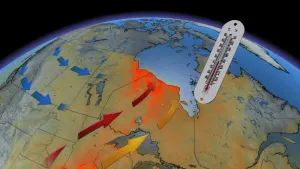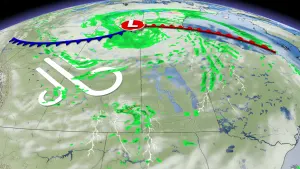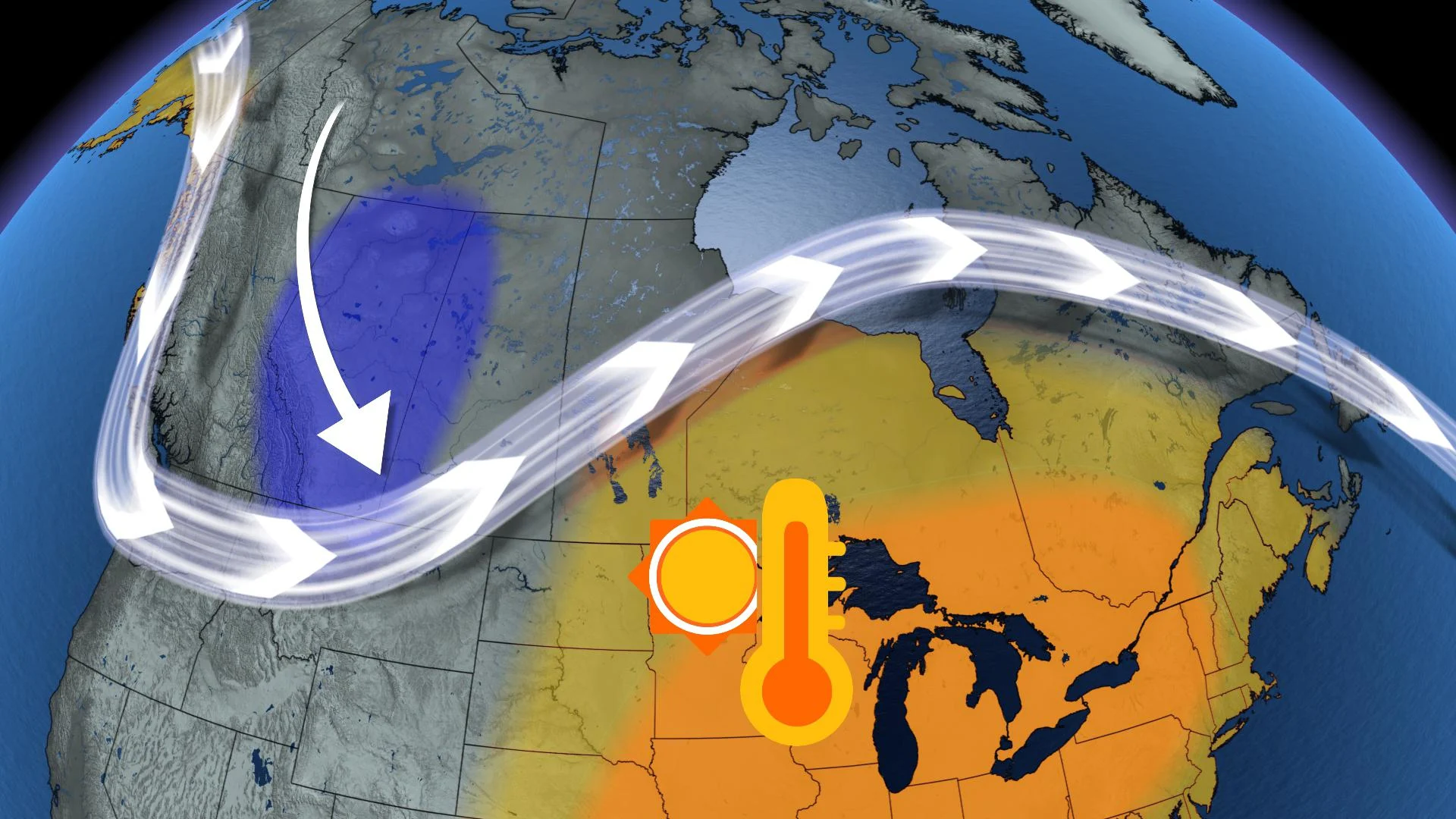
July outlook: Sizzling in the east, struggling in the west
During mid and late July, the contrasting pattern is expected to break down at times, but not completely reverse, and the Great Lakes region is expected to stay hot.
The heart of summer is just underway, and parts of Canada from Ontario to Atlantic Canada have already experienced record heat and nearly as many hot days as all of last summer.
For example, Toronto has already reached 30°C on 11 days, which is equal to the number of days that reached 30°C during June, July and August of 2019.
Meanwhile, much of Western Canada, especially B.C. and Alberta, is still waiting for consistent summer warmth, and that pattern will continue through early July.
The map below shows the pattern that we expect to dominate during the first two weeks of July, with cooler-than-seasonal temperatures across most of B.C. and Alberta.
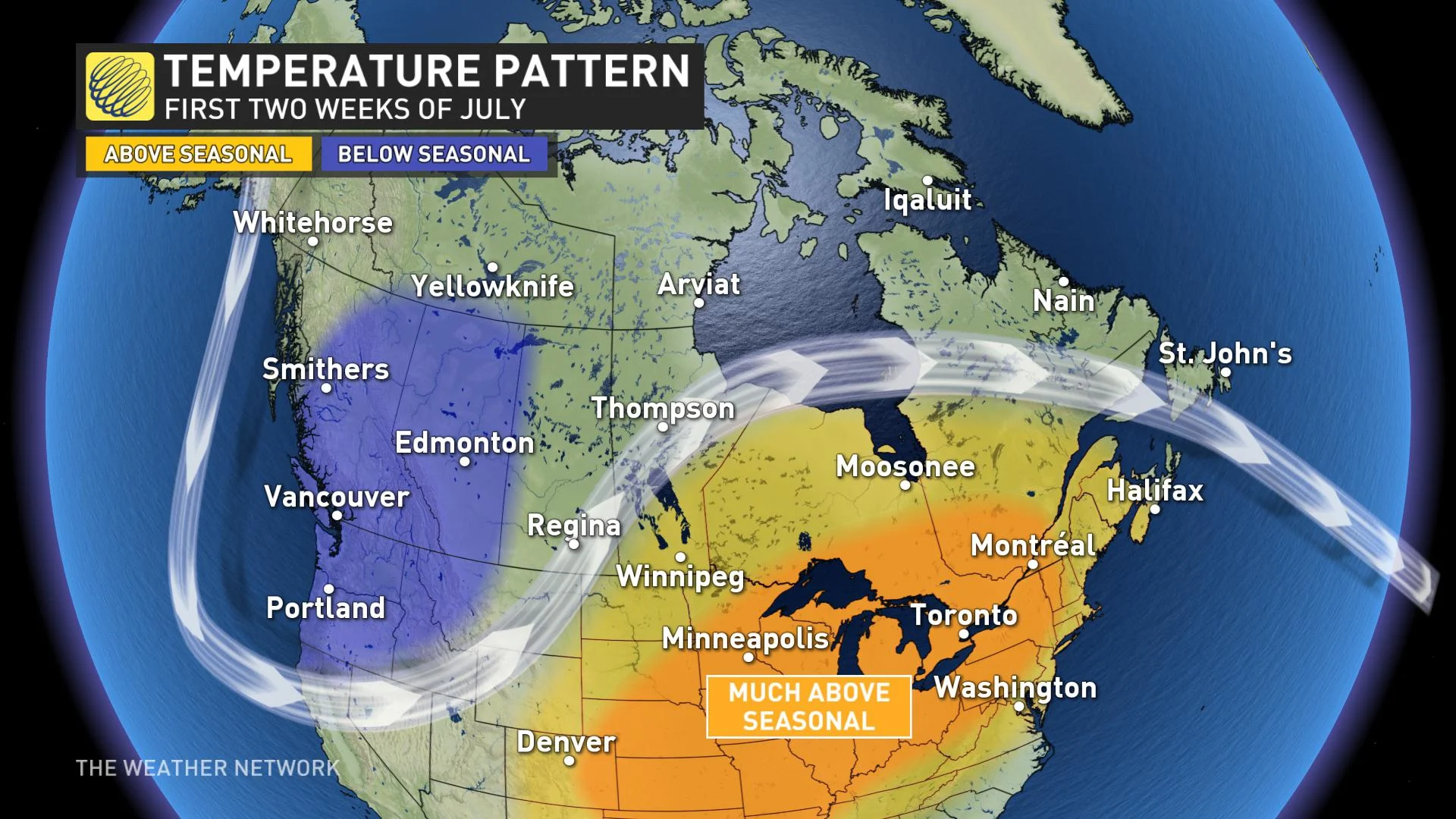
Meanwhile, very warm weather will continue to dominate from southern Manitoba to the Maritimes, with the most consistent heat from the Great Lakes to southern Quebec. Newfoundland will see several days of chilly weather before warmth returns late next week.
The Prairies will continue to be the battleground between the contrasting temperature patterns, so we will continue to see stormy weather across the region and areas of excessive rain.
During mid and late July, the contrasting pattern is expected to break down at times, but not completely reverse. This will allow B.C. and Alberta to see periods of more typical summer weather, but at this point, it does not look like Alberta will see enough hot weather to completely make up for the cooler weather during the first half of the month. The map below is our pattern map for the month of July as a whole.
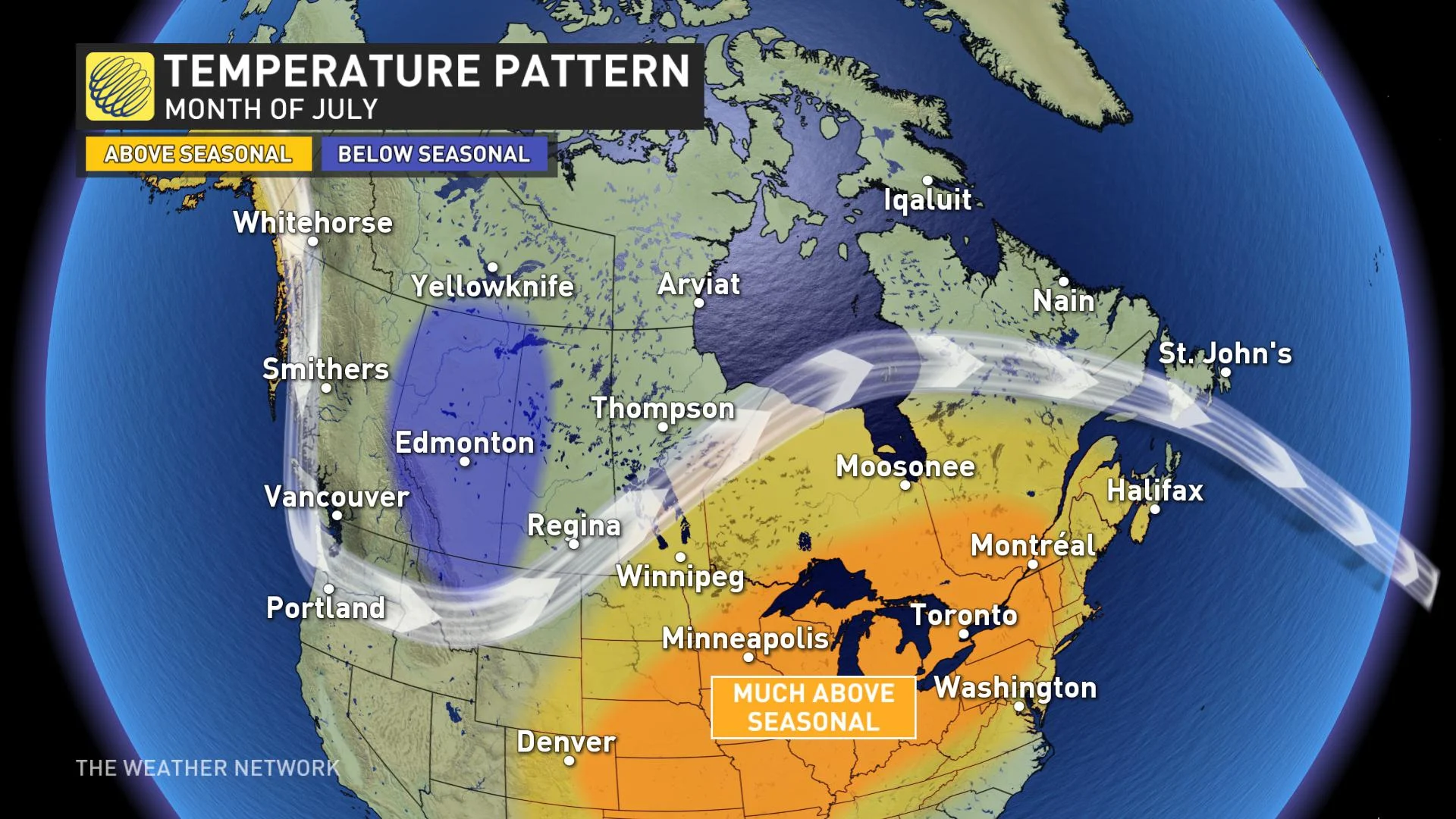
Meanwhile, Ontario and Quebec will see some relief from the heat at times during the middle and end of July with a couple of periods of cooler and possibly stormy weather, but overall, a very warm-to-hot pattern is expected to dominate the month, and drought is a major concern for parts of the region.
For Atlantic Canada, we expect alternating periods of hot weather and cooler weather, which should come close to offsetting each other across Newfoundland and tip to the warm side of normal across the Maritimes.







